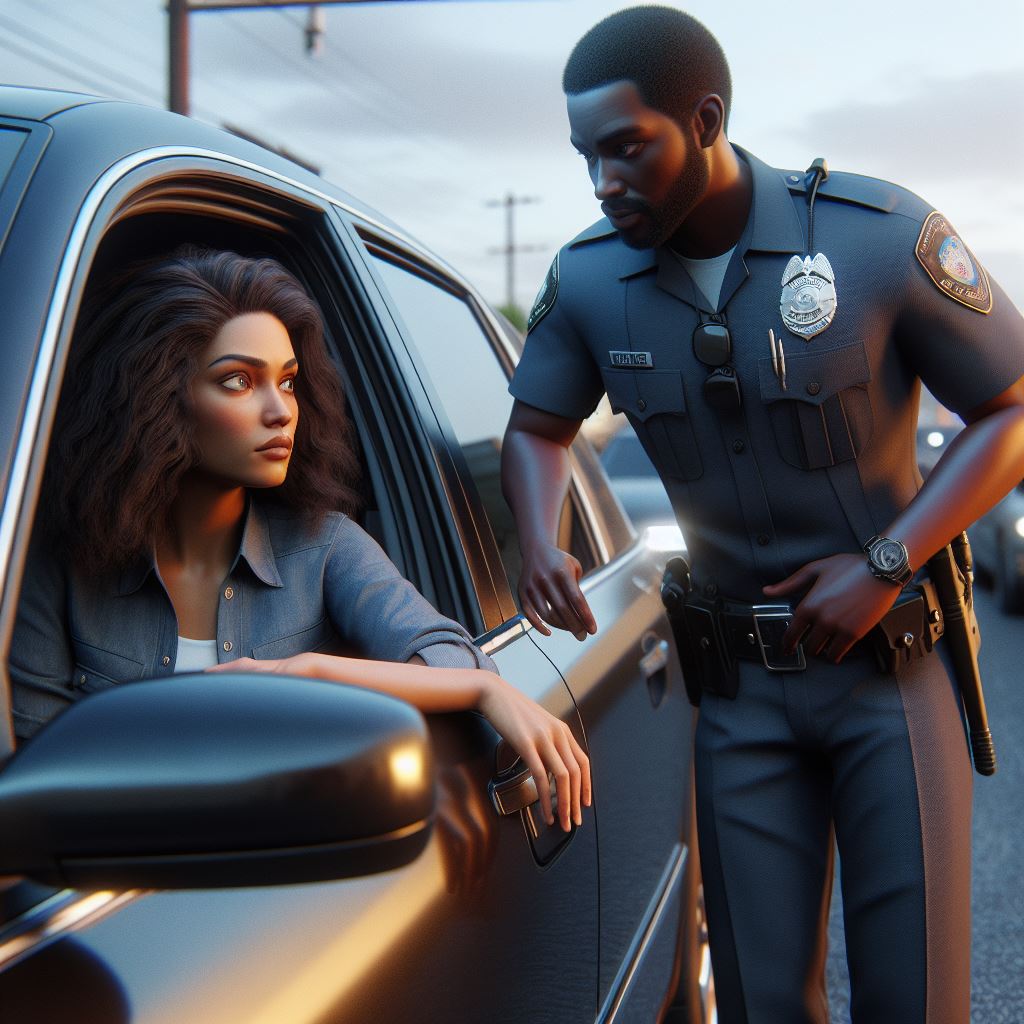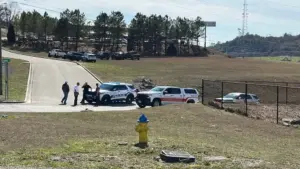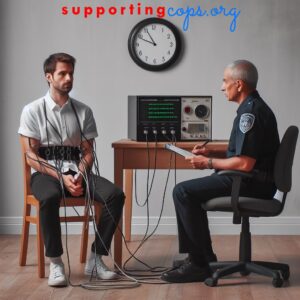Can a Cop Search Your Car Without a Warrant?
Summary
Can cops search your car without permission?
Here are some key things to know about whether police can search your car without permission in the United States:
- In general, police need probable cause to legally search your car without a warrant. Probable cause means they have reasonable and articulable facts to believe evidence of a crime will be found by searching your car.
- Police can also search your car without a warrant if they get consent. If they ask to search and you voluntarily agree, that establishes consent. You have the right to refuse consent.
- In the event of an arrest, police have more latitude to search your car without a warrant as a search incident to arrest, looking for evidence related to the crime.
- At DUI checkpoints or routine traffic stops, police may do an external visual search without any extra cause, but they still typically need consent, probable cause or a warrant to search inside the car or locked containers unless circumstances give rise to reasonable suspicion or safety concerns.
- There are also “automobile exception” rules allowing warrantless searches of cars in some cases if there is probable cause relating the search to the car itself.
What the Fourth Amendment Says About Searching Vehicles
The Fourth Amendment of the U.S. Constitution protects against “unreasonable searches and seizures.” It generally requires police to have probable cause and a warrant before searching someone’s property. However, courts have made exceptions for searching vehicles without warrants in some circumstances. Still, those searches must normally have some justification and not be arbitrarily invasive.
Probable Cause is Required for Most Vehicle Searches
In most cases, the police need “probable cause” that a search will reveal evidence of illegal activity. For example, seeing contraband in plain sight, smelling marijuana, or having evidence that a vehicle contains stolen goods could establish probable cause to search areas where those items could be found. But without such individualized suspicion, a speculative search rarely holds up in court.
Exceptions Allow Warrantless Searches in Some Cases
The courts have upheld warrantless vehicle searches based on implied driver consent in certain instances like sobriety checkpoints or after lawful arrests. Additionally, officers can perform limited “inventory searches” after impounding a vehicle just to catalog belongings. Investigatory stops also let police briefly search for weapons based on reasonable suspicion of danger. Still, most exceptions have specific constraints.
Types of Legal Vehicle Searches Without a Warrant
Beyond routine traffic enforcement, certain circumstances enable police to legally search cars and occupants without obtaining a search warrant first. However, any such warrantless search still requires some objective justification and permissible scope.
Traffic Stops and Plain Sight Searches
If pulled over for a traffic violation, the officer can visually inspect the vehicle from their position to look for illegal items in “plain sight” like open containers of alcohol or illegal weapons. If officers observe contraband or evidence of a crime without entering the vehicle, they can use that to establish probable cause for a further search in the area where those items could be retrieved. But they cannot extend a traffic stop to let a drug-sniffing dog survey the exterior absent reasonable suspicion of criminal activity beyond the traffic offense itself.
Reasonable Suspicion of Danger
If officers have “reasonable, articulable suspicion” that a stopped driver may be dangerous and have access to weapons in the vehicle, they can conduct a limited “frisk” search for weapons in the passenger compartment. For example, noticing a knife or the outline of a gun under clothing could prompt a self-protective sweep for easily accessed weapons that could threaten officer safety. However, once officers determine no threat exists, the weapons search must end.
Implied Consent for Intoxicated Drivers
In all states, drivers implicitly consent to chemical BAC testing and vehicle searches if arrested on suspicion of DUI or DWI. So if properly arrested after failing field sobriety tests, a driver can face criminal charges for refusing to submit to a chemical test of blood, breath, or urine to detect intoxication. Drivers also automatically consent to vehicle searches to obtain opened or closed containers of alcohol when arrested for suspected drunk-driving.
Searching Rented or Borrowed Vehicles
Drivers often misunderstand that their rental agreements or informal borrowing arrangements alone do not prevent searches of vehicles they do not own. Without the registered owner present, the driver cannot personally object if officers have probable cause to search for evidence relevant to traffic safety, emissions standards, contraband transportation, or other unlawful use of the vehicle. But renters and authorized borrowers do retain a privacy interest regarding belongings officers have no probable cause reason to search for.
Inventory Searches After Impounding Vehicles
Police departments often have standard protocols to catalog valuables for “inventory searches” following the lawful impoundment of vehicles—such as after an arrest, accident, parking violation, or recovering a stolen/abandoned vehicle. Inventory searches conducted through routine procedures solely to log articles in plain sight, not investigate crimes, are generally constitutional without any warrant requirement according to the Supreme Court. Still, inventories must not exceed the objective scope of logging apparent belongings without formal accusatory intent behind the search.
Consent Searches if Permission is Given
Most critically, the Fourth Amendment permits warrantless vehicle searches if the driver or other person in apparent control of the property voluntarily gives clear consent when officers request to search the vehicle. Consent cannot be the product of deception, coercion, or force by police. While innocent drivers are free to permit or refuse searches, those carrying contraband often believe cooperating with police may avoid closer scrutiny—but it actually achieves the opposite effect and should be politely refused until officers clarify justification.
Refusing a Vehicle Search and Exercising Rights
While citizens want to support law enforcement, no one must consent to unjustified intrusions absent formal judicial authority. By politely standing up for search and seizure protections upon reasonable request, even innocent drivers help maintain constitutional rights for themselves and others.
Staying Calm and Speaking Respectfully
Always engage police in a courteous manner when refusing consent for a search request. Clearly express unwillingness to permit any warrantless intrusion without probable cause, but avoid hostile words or actions. Defuse tension using honorifics like “sir” or “ma’am” when stating objections.
Expressing Non-Consent Clearly
Directly tell officers polite versions of “I do not consent to any searches” and “I will not resist lawful court orders if served, but cannot voluntarily allow searches without warrants today.” Repeat non-consent if asked different ways. This may require politely interrupting ongoing searches believed inappropriate. Calm repetition establishes non-consent.
Avoiding Violence, Force, Fleeing, or Obstruction
Never use force or touch officers, even defensively, when declining consent or asking them to cease unauthorized searches. Verbally communicate willingness to comply with properly issued warrants without resistance. If officers believe probable cause exists to proceed without consent, clearly state objections but allow searches instead of obstructing them or fleeing. Non-violent non-cooperation helps clarify later legal challenges while avoiding additional criminal charges.
Following Up After an Improper Search
After any warrantless searches without apparent probable cause and over objections, respectfully collect officers’ identifying information and badge numbers plus department leadership contacts. Ask what justification enabled each search without warrants. Later calmly contact supervisors to file complaints summarizing perceived Fourth Amendment violations backed by supporting evidence like audio/video recordings clearly capturing objections. Consulting defense attorneys helps decide additional civil liberties protections to pursue for improper warrantless searches or seizures.
Conclusion
Vehicle searches generally require warrants, probable cause, immediate safety rationales, or voluntary consent. By politely refusing speculative requests lacking clear justification, drivers help reinforce constitutional principles while avoiding needless police conflicts through cooperation with lawful court orders. Collecting relevant information and contacting supervisors also enables following up after concerning encounters where warrantless search authority seemed overapplied. Exercising vehicle search and seizure knowledge protects both public safety and civil rights.
Frequently Asked Questions
Q: Can police demand to search your vehicle during all traffic stops?
A: No, officers cannot conduct speculative searches without warrants, probable cause, or consent just because someone gets pulled over. However, they can visually inspect the vehicle interior from outside or ask permission to search as part of the stop.
Q: Do passengers have to agree to vehicle searches if the driver consents? A: No, passengers can individually decline consenting to searches of their property located in the vehicle. But non-consenting passengers may need to clearly identify specific containers or spaces solely under their control.
Q: Is locked luggage in the trunk protected from consent searches?
A: Potentially yes, since controlling access suggests the driver lacks authority to permit searches of locked containers clearly belonging to others. However, access restrictions do not limit searches once police have separate probable cause.
Q: Can officers search a vehicle if the driver is arrested during a traffic stop?
A: It depends. Following a valid arrest based on probable cause, police can search areas within the arrestee’s immediate control without a warrant. However, searches beyond the passenger area likely require separate justification unrelated to the initial traffic violation leading to arrest.
Q: Do basic vehicle equipment checks enable full searches?
A: No. While safety inspections, emissions tests, administrative audits, or other regulatory searches may be required in some instances, these only authorize examinations to the extent reasonably related to the non-criminal purpose for stopping vehicles on public roads. Any contraband discovered “in plain view” during limited equipment assessments may establish cause for further searches though.







